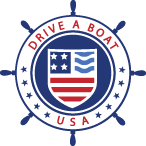Common Causes of Boat Fires
Boat fires pose a real and serious threat. It’s important to respond quickly if a fire ignites, but it’s just as important to do everything you can to prevent a boat fire in the first place.
Keep reading to learn the common causes of boat fires, and what you can do to prevent them from starting.
Are boats flammable?
It seems strange to worry about fire when you are surrounded by water, but just as you can stay dry while on a boat, there are areas of your boat that can ignite even when the hull is submerged.
Most boats today are built out of fiberglass and/or resin-soaked wood. These materials burn quickly and when they do, they release large volumes of highly-toxic smoke.
Aside from the boat structure, there are other potentially flammable materials on your vessel, including seats, cushions, cooking equipment and extra fuel.
But what causes a boat fire to start?
Causes of boat fires
There are five major causes of boat fires. Motor-powered vessels are vulnerable to certain engine-related risks, while rowboats and sailboats may be more likely to incur fire damage due to their flammability and location. Use common sense to assess the relevance of each risk for your particular pleasure craft.
1. Electrical problems
Electrical problems are the leading cause of boat fires, accounting for about 29% of fires on outboard boats. Issues include:
- Short circuits
- Damaged wiring
- Overloading the electrical system
- Faulty voltage regulators, especially in older outboard engines.
Electrical components like shore power connections can also cause fires, particularly in boats over 10 years old. Newer boats are much less likely to be at risk of an electrical fire. You can verify the age of your boat by referring to your boat’s Hull Identification Number (HIN).
2. Battery issues
Improper battery installation or maintenance can also cause fires. Common problems include:
- Reversing positive and negative cables
- Loose connections
- Corroded terminals.
In many cases, these issues arise from human error. It’s a common mistake to reconnect the batteries incorrectly when you do your spring boat maintenance. One easy way to keep track of how to connect your batteries is to take a quick picture with your phone before disconnecting any component, and to label your battery cables and positive post.
It’s important that your battery components are compatible, in good condition and rust-free. Loose connections, chafed battery cables, and shorted switches can cause fires. Regular checks and careful seasonal maintenance are key.
Battery recharging incidents
Using non-marine battery chargers, which often lack the correct settings to maintain the proper float rate for marine batteries, can lead to fires due to overcharging. Also, if a charger is placed in an enclosed space where fuel fumes can accumulate, it could potentially cause a fire or explosion.
Never use a car battery charger on a boat, as it not only lacks advanced float settings but also rarely has ignition protection.
3. Fuel-related problems
Fuel leaks and spills are a major cause of boat fires. About 11% of outboard fires are caused by fuel leaks linked with loose hose clamps (caused by engine vibration) or permeable fuel lines. Check your fuel lines to confirm that they aren’t shiny, and sniff to verify if there is a gasoline leak. Replace your hose clamps as often as needed.
Be aware that the fumes from most boat fuels are also flammable. Install an appropriate ventilation system on your boat to reduce the risk of fires cause by exploding gas fumes.
4. Engine compartment fires
Engine overheating can also lead to fires. These are often linked with:
- Cooling water intake blockages
- Mangled pump impellers
- Exhaust system issues.
5. Fires that start off the boat
A surprising number of reported boat fires originate away from the vessel. Some are caused by elements that are not directly related to marine activities, and roughly 26% occur while a boat is in storage or transportation. For example:
- Cooking and heating appliances on board can pose fire risks if not used properly. A fire in the galley can quickly spread to other areas of the vessel, putting the boat and its passengers in grave danger.
- Smoking, wood burners, and candles can be fire hazards if not carefully managed.
- Storage facilities located near to fire hazards such as old wood buildings (barns or garages) put your boat at risk of burning if one of these nearby structures ignites.
Boat fire response basics
Even if you do everything possible to reduce the risk of a boat fire, you should also be prepared in the event that you need to respond to one. The first few minutes are the most important when fighting any fire. What you do could mean the difference between putting it out and having to abandon your craft.
Be prepared for a boat fire:
- Make sure you have an approved, functioning boat fire extinguisher on board your boat. Store it in an easily accessible location.
- Do regular boat safety equipment checks to make sure everything is in good working order.
- Make sure everyone on board knows the fire drill and can respond correctly in an emergency.
- Learn appropriate marine distress signals, including visual distress signals for day and nighttime use, and keep communication equipment handy in case you need to call for help.
- Be familiar with what to do if your boat capsizes or you need to abandon your vessel.
Learn about safe boating with Drive A Boat USA
Regular maintenance, proper installation of electrical and fuel systems, and vigilant safety practices are key to preventing boat fires.
Remember, any fire needs three things to burn: heat, fuel and oxygen. All three of these are found in and around boats.
To learn more about boating safety and get your state-approved boating license, join thousands of other boaters in New York, California, Florida and other states who signed up at Drive A Boat USA!

